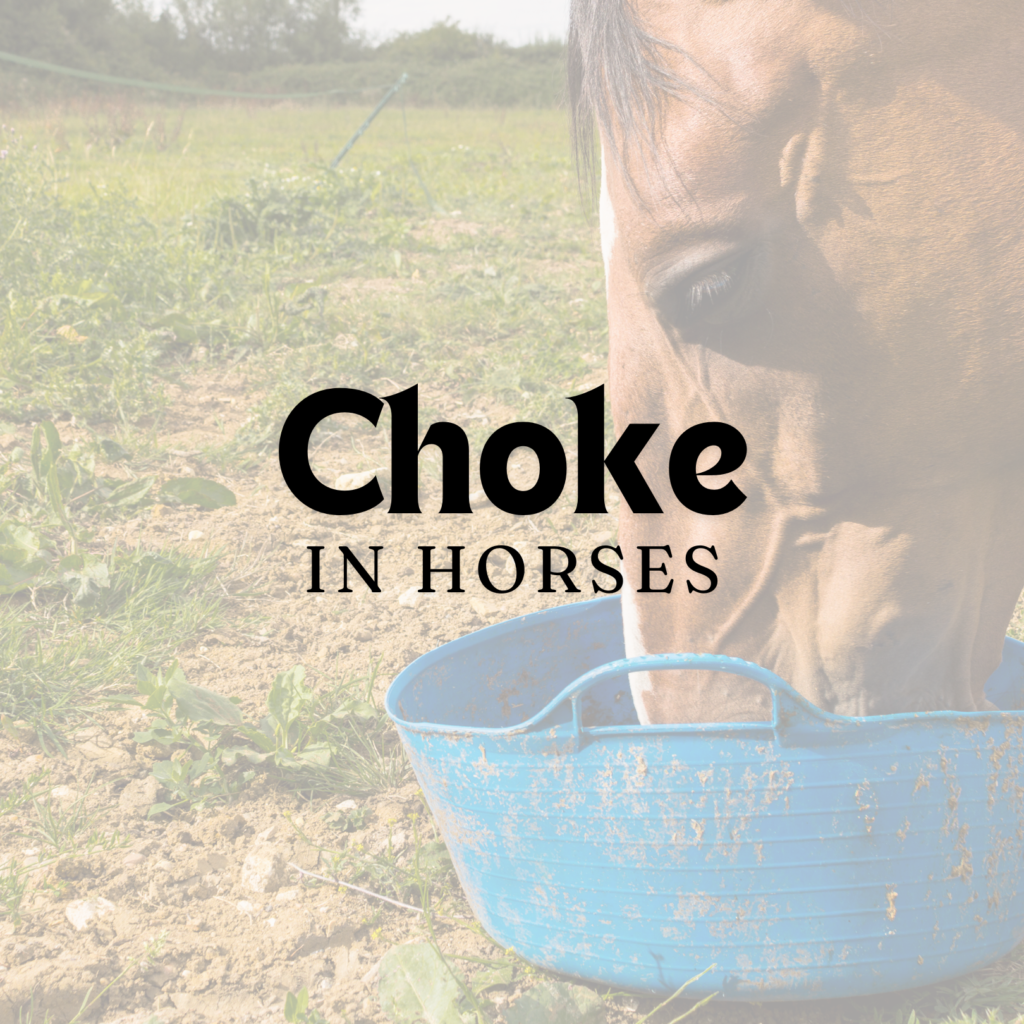Choke in Horses

What causes choke?
Choke is a relatively common condition that occurs when food or a foreign body blocks the horse’s esophagus (gullet), which is the tube that takes food from the back of the mouth (pharynx) to the stomach. Choke may be partial or complete.

The most common cause of choke is swallowing food or other material, that is either too dry or coarse (most commonly hay), or that swells rapidly once chewed (typically sugar beet) so that its passage down the esophagus is slowed or stopped. It can occur if a greedy horse attempts to swallow hay without chewing it thoroughly or in foals who are given access to dry, coarse hay or straw. Any condition that interferes with the horse’s ability to swallow (e.g., sedation, trauma (injury) to the neck or esophagus, grass sickness, botulism, etc.) can predispose to choke.
What are the signs of choke in horses?
The most obvious signs are discharge of saliva and feed material from the nostrils and/or mouth, depression and apparent difficulty in swallowing. When first ‘choked’ some horses will panic, make repeated unsuccessful efforts to swallow, cough and ‘gag’ as though trying to clear something from the back of the throat. If the condition has gone unnoticed, the horse may become dehydrated and severely depressed. If the esophagus ruptures, death may follow due to shock and infection. Fortunately, this is not common. Although many cases clear on their own, if you think your horse has choke, call your veterinarian immediately. The sooner treatment is applied, the sooner the condition will resolve and second complications are less likely.
How is the diagnosis of choke confirmed?
Your veterinarian will pass a stomach tube via a nostril down into the esophagus to confirm that something is obstructing its passage into the stomach. This examination will also determine at what level the blockage has occurred, how solid it feels and if it can be gently encouraged to pass on into the stomach.
How is choke treated?
In most cases, saliva continually produced in the mouth lubricates the offending obstruction, eventually allowing its passage to the stomach. Your veterinarian can help speed resolution by administering a sedative or a spasmolytic (‘antispasm’) injection to help relax the muscles of the esophagus. Sometimes, this is all that is required. In other cases the obstruction can be gently encouraged to move on down into the stomach with the help of the stomach tube. This must be done with great care to avoid injury to the esophagus. If this cannot be achieved easily, the horse is sedated and the obstruction is flushed with water and lubricant via the stomach tube, with the head positioned lower than the esophagus. Fluid is gently pumped in via the stomach tube and allowed to run out the nostrils, gradually flushing some of the obstructing material out. This can be a long process and patience is needed to avoid damaging the esophagus. In some panic-stricken, uncooperative or solidly-obstructed cases it is necessary to anesthetize the horse to allow flushing to be performed safely and thoroughly. Once the choke is cleared the horse should be fed sloppy feeds or grass for several days to allow any local swelling to subside.
What are the possible complications?
The most important complication is esophageal rupture either as a direct result of the obstruction or following attempts to dislodge it.
Another possible complication is inhalation pneumonia. Occasionally while choked, the horse may aspirate (breathe in) fluid and/or food material into the trachea (windpipe) and lungs causing infection, that may be fatal.
Can I prevent choke?
The most important management considerations are:
- Soak dried foodstuffs thoroughly to allow them to swell before they are eaten and swallowed.
- Ask your veterinarian to provide regular routine dental care to allow the horse to chew food thoroughly and effectively before it is swallowed. Injuries to the insides of the cheeks, caused by sharp teeth, will cause discomfort and may discourage a horse from chewing food properly.
- Provide permanent access to clean water to encourage the horse to drink normally.
- Some horses choke on a particular feed and once this is recognized, access should obviously be avoided.
Contributors: Deidre M. Carson, BVSc, MRCVS & Sidney W. Ricketts, LVO, BSc, BVSc, DESM, DipECEIM, FRCPath, FRCVS.
Edited by Kim McGurrin BSc DVM DVSc Diplomate ACVIM
© Copyright 2010 Lifelearn Inc. Used and/or modified with permission under license.

